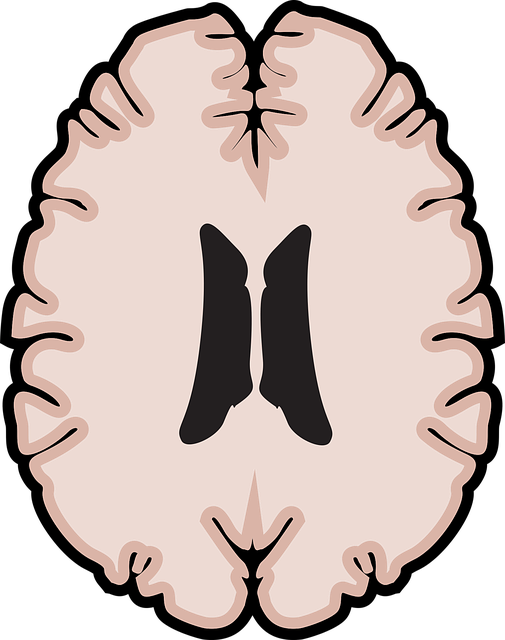Implementing successful harm minimization strategies in Wheat Ridge Post-Traumatic Stress Disorder (PTSD) Therapy relies on comprehensive risk assessments. Therapists identify external threats and internal psychological states to anticipate risks, develop mitigation plans, and foster a supportive environment. This includes addressing mental health history, stigma reduction, early intervention techniques, confidence-boosting methods, and accessible education resources. By combining evidence-based practices with continuous assessment, Wheat Ridge PTSD Therapy creates a secure space for clients to manage their mental health effectively, promote emotional well-being, and enhance overall therapy outcomes.
Risk assessment and harm minimization planning are essential components of any comprehensive mental health service, especially in specialized practices like Wheat Ridge Post-Traumatic Stress Disorder Therapy. This article explores critical aspects of risk management, focusing on understanding risk assessment, identifying vulnerabilities, and implementing practical strategies to safeguard clients. We delve into specific approaches, including Wheat Ridge’s unique therapy model, to ensure client safety and well-being.
- Understanding Risk Assessment: Identifying Potential Threats and Vulnerabilities
- Harm Minimization Strategies: Practical Approaches to Safeguarding Clients
- Wheat Ridge Post-Traumatic Stress Disorder Therapy: A Specialized Approach
- Implementing Effective Risk Management Plans: Ensuring Client Safety and Well-being
Understanding Risk Assessment: Identifying Potential Threats and Vulnerabilities

Understanding risk assessment is a pivotal step in implementing effective harm minimization strategies, especially in specialized fields like Wheat Ridge Post-Traumatic Stress Disorder (PTSD) Therapy. It involves a meticulous process of identifying and evaluating potential threats and vulnerabilities that may impact an individual’s well-being or pose challenges to therapy outcomes. By meticulously scrutinizing various factors, therapists can anticipate possible risks and develop proactive mitigation plans.
This process includes recognizing not only external hazards but also internal psychological states. For instance, assessing a patient’s history of mental health issues, such as low self-esteem or the presence of stigma around mental illness, is crucial. These vulnerabilities can significantly influence an individual’s therapeutic journey. Integrating this understanding into the design of Mental Health Education Programs can foster Self-Esteem Improvement and contribute to Mental Illness Stigma Reduction Efforts, ultimately enhancing the overall effectiveness of therapy sessions in a Wheat Ridge PTSD setting.
Harm Minimization Strategies: Practical Approaches to Safeguarding Clients

Harm Minimization Strategies play a pivotal role in safeguarding clients and ensuring positive outcomes in therapy, particularly for those dealing with post-traumatic stress disorder (Wheat Ridge Post-Traumatic Stress Disorder Therapy). These strategies focus on practical approaches to mitigate risks and promote resilience. One such approach is early intervention, which involves promptly addressing symptoms and triggers to prevent escalation. This can include regular check-ins, crisis management plans, and education on coping mechanisms tailored to each individual’s needs.
Confidence boosting techniques are also integral, empowering clients to manage their conditions effectively. Mental health professionals can facilitate this by encouraging self-care practices, providing support networks, and offering evidence-based therapies like cognitive-behavioral therapy (CBT). Additionally, the Mental Wellness Podcast Series Production can be leveraged to raise Mental Health Awareness, offering accessible resources and sharing success stories, thus fostering a sense of community and normalizing the journey towards mental wellness.
Wheat Ridge Post-Traumatic Stress Disorder Therapy: A Specialized Approach

Wheat Ridge Post-Traumatic Stress Disorder Therapy offers a specialized approach to address the unique challenges faced by individuals dealing with PTSD. This therapeutic model is designed to help clients navigate their traumatic experiences and develop effective coping strategies for long-term emotional well-being promotion. By integrating evidence-based techniques, mental health professionals in Wheat Ridge focus on risk management planning as an integral part of treatment.
The process involves a comprehensive risk assessment for each client, identifying potential triggers and vulnerability factors. This enables therapists to tailor interventions that mitigate risks associated with PTSD, ensuring a safe and supportive environment. Through this specialized approach, emotional well-being promotion techniques are implemented, empowering individuals to manage their mental health effectively and foster resilience in the face of adversity.
Implementing Effective Risk Management Plans: Ensuring Client Safety and Well-being

Implementing effective risk management plans is paramount in ensuring client safety and well-being, especially when addressing complex issues like Post-Traumatic Stress Disorder (Wheat Ridge Post-Traumatic Stress Disorder Therapy). These plans serve as a strategic framework to navigate potential risks and mitigate their impact. By integrating evidence-based practices and continuous assessment, mental health professionals can foster a secure environment conducive to emotional healing processes.
Mental Health Awareness is enhanced through proactive risk assessments that identify triggers and vulnerabilities unique to each client. This enables tailored interventions focusing on Stress Management techniques, ensuring individuals receive comprehensive support throughout their therapeutic journey. Through meticulous planning and agile adaptation, the potential for adverse outcomes is minimized, allowing clients to focus on their emotional recovery.
Risk assessment and harm minimization planning are essential components of providing comprehensive client care, especially in specialized fields like Wheat Ridge Post-Traumatic Stress Disorder Therapy. By understanding potential threats and vulnerabilities, therapists can implement practical strategies to safeguard clients. This includes tailored approaches that address unique challenges, such as those presented by PTSD. Effective risk management plans ensure the safety and well-being of individuals seeking support, fostering a secure environment for healing and growth.














